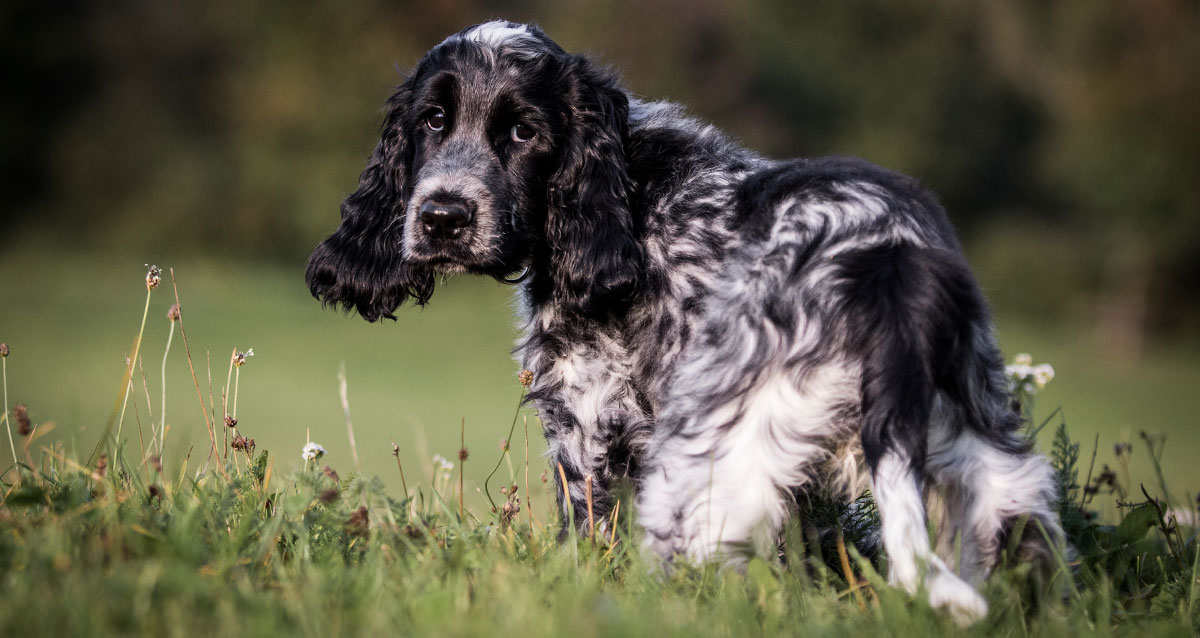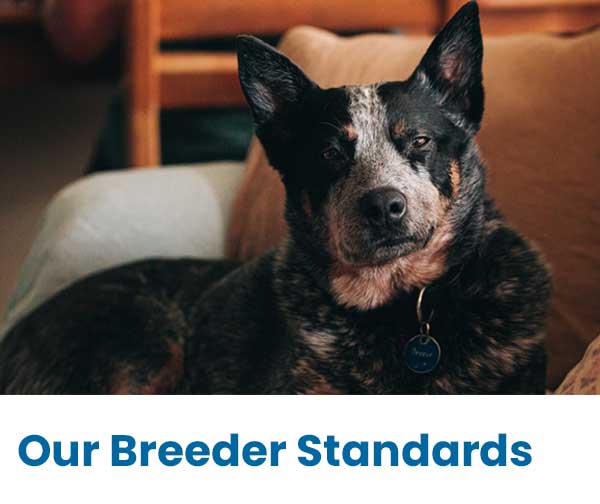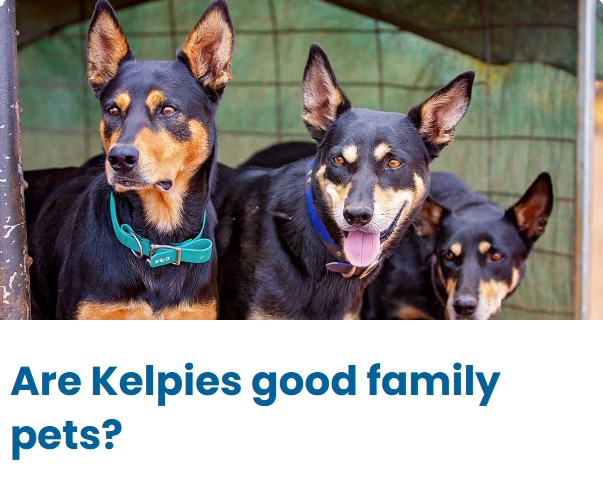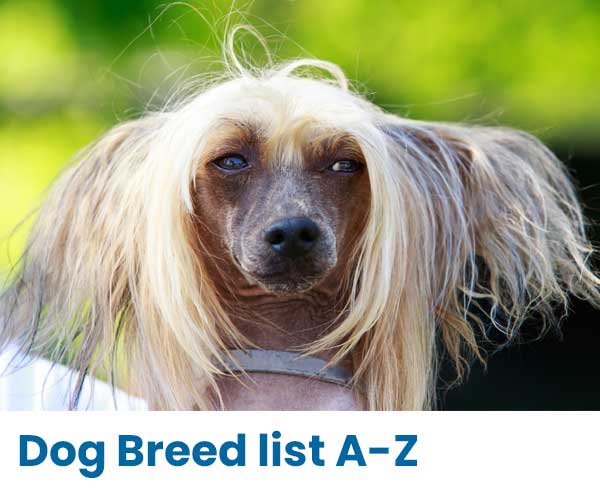Cocker Spaniel breed guide
The English Cocker is no doubt one of the oldest types of land spaniel. Their origins can be traced back to 14th century Spain. Prior to the 1600's all types of spaniels were categorised together; the larger ones being used to spring game and the smaller ones to flush out woodcock. Hence the names Springer and Cocker were derived. In 1892, the Kennel Club of Great Britain differentiated the two breeds separately. In the 1930's, the Cocker was the most popular breed of dog in Britain and there he stayed for almost 20 years! On the other side of the Atlantic, Americans were using the same breeding stock to develop a slightly different Cocker.
Cocker Spaniel Temperament
The AKC Standard says, "His enthusiasm in the field and the incessant action of his tail while at work indicate how much he enjoys the hunting for which he was bred." When well socialized, the English Cocker Spaniel has a merry tail-wagging nature and is sweet and gentle with everyone. Some are on the reserved side, and there is timidity and excessive submissiveness in some lines. Cocker Spaniels have a very sociable character and love nothing better than to be with their family which means they can be prone to separation anxiety and do not make good guard dogs.
Few are used today as gundogs. Cocker Spaniels enjoy work and mental stimulation, making an excellent pet for active families and they also excel as sniffer dogs. That pleasure is closely rivalled by the pleasure the dog derives from being close to family members. This is a breed that likes to be part of every family activity. He is cheerful, biddable, loyal, sensitive and playful; in short, a perfect companion for a considerate child or an adventurous adult.
This is a friendly dog, whether to other dogs and pets, children, strangers, and even burglars. The English cocker spaniel is a pretty good watchdog, but a poor choice for a protection dog.
The ideal owner for a Cocker Spaniel
The Cocker Spaniel is a good "all round" Dog, they are excellent with Single person families, larger families, young and older people, they are even good with young children as long as the children have been taught to respect the dog. They are adaptable and robust enough to cope with school-aged children but may not tolerate toddlers or pre-schoolers.
Cocker Spaniel training and socialisation
Puppy socialization is the gradual process of gently exposing your new puppy to everyday sights, sounds, and situations, in a positive and non-threatening way to help him get used to his surroundings. You might ask if socializing a puppy is a necessary part of his training. Well, yes, because a properly structured socialization strategy is necessary for all puppies to help them to integrate successfully, not only into our human world but into theirs too.
Under-socialized puppies often end up being frightened and confused by the simplest of situations or noises and are often nervous about what's going on around them.
In general, Cockers can be trained easily. They are even-tempered, eager to please and enjoy learning.
How much space and exercise do Cocker Spaniel's need?
Cocker Spaniels don't need much space and are good for apartment living, or small houses. If living in an apartment, they will require a walk every day.
Cocker Spaniels and grooming
Cocker Spaniels can be prone to matting and are high-maintenance. Their long wavy coat needs to be brushed every second day, their ears checked, and their coat trimmed on a regular basis (4-6 weekly). During shedding season, you should groom your Cocker every day. Grooming helps to develop and strengthen the bond between owner and dog. Grooming also allows you to look for fleas and ticks, sores, grass seeds, matting, lumps, skin problems, and cuts, so you can treat them before problems develop.
Potential health issues in Cocker Spaniels
English Cockers have some health conditions that can be a concern, especially if you aren't cautious about who you buy from. They include progressive retinal atrophy, patellar luxation, cataracts, hip dysplasia, juvenile-onset renal failure, hypothyroidism and, in particular, hearing loss.
Ask the breeder to show evidence that both of a puppy's parents have hip, knee and thyroid clearances from the Orthopedic Foundation for Animals, OFA BAER (Brainstem Auditory Evoked Response) test results for hearing, and eye clearances from the Canine Eye Registry Foundation.
All purebred dogs have the potential to develop genetic health problems. Do not proceed with a breeder who does not offer a health guarantee on puppies, who tells you that the breed is 100 percent healthy and has no known problems, or who tells you that her puppies are isolated from the main part of the household for health reasons. A reputable breeder will be honest and open about health problems in the breed and the incidence with which they occur in their lines.
Cocker Spaniel FAQ's
How big do Cocker Spaniels get?
A Cocker Spaniel is a medium-sized breed weighing between 12-14.5kgs, with a height between 38-41cms.
How much energy do Cocker Spaniels have?
Cockers have loads of energy, particularly when they're young, and are very excitable, fun, playful dogs. The equivalent of a gym-bunny: they love to play but also love to relax afterwards.
How difficult are Cocker Spaniels to train?
Their high level of intelligence and desire to please makes them very easy dogs to train.
Are Cocker Spaniels suitable for families?
They make a great pet for all households; they are a loyal companion, a great watchdog, and a perfect family pet.
Are Cocker Spaniels compatible with other dogs and animals?
Cockers usually get on well with other pets. They are gundogs though, and in some instances care should be taken around chooks and pet birds.
How much company do Cocker Spaniels need?
Cocker Spaniels love attention and company. They can be prone to separation anxiety, and generally don't do well left alone for long periods. They are often called "velcro dogs" due to their tendency to follow you around the house.
Are Cocker Spaniels a hypoallergenic dog breed?
No.
Do Cocker Spaniels shed?
Cocker Spaniels are moderate shedders.
Do Cocker Spaniels have a tendency to bark?
Cocker Spaniels have a moderate to high tendency to bark.
Special thanks to Vicki McDowall - Kwolatee Cocker Spaniels, and Cocker Spaniel Rescue Australia for contributing to this breed information.
If you are a small scale ANKC registered breeder and would like to be listed here, just contact us or follow a few simple steps to add your details yourself.
We welcome helpful comments and contributions to information about this breed by email
Cocker Spaniels are the Smallest Athletes!Cocker Spaniels are built adorable, yet tough. They are the smallest athletes who just want to follow you everywhere!Don't forget to share this with a friend who loves these adorable pups!
Posted by Animalist on Friday, 21 August 2015







